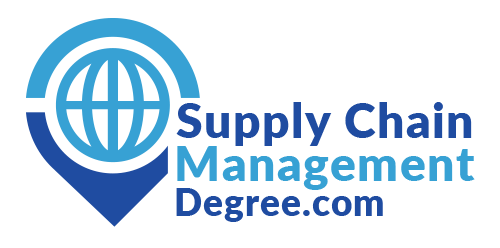How a Recession Affects the Supply Chain
Economic recessions can have a profound impact on various sectors, and the supply chain is no exception. As businesses and consumers adjust to the changing economic landscape, supply chains must adapt to new challenges and demands. Understanding how a recession affects the supply chain can help businesses develop strategies to navigate these turbulent times. Here’s a closer look at the ways a recession can influence the supply chain and how companies can respond effectively.
Reduced Consumer Demand
During a recession, consumer spending typically decreases as people become more cautious about their finances. This drop in demand can lead to lower sales volumes for businesses, affecting the entire supply chain. Suppliers may face reduced orders, which can lead to excess inventory and financial strain. To mitigate this, companies may need to adjust their production levels, manage inventory more efficiently, and explore ways to stimulate demand through promotions or product innovations.
Supply Chain Disruptions
Recessions can cause disruptions in the supply chain as companies face financial constraints, leading to potential issues with suppliers and logistics providers. For instance, suppliers may struggle with cash flow issues or even go out of business, creating gaps in the supply chain. Businesses need to develop contingency plans and diversify their supplier base to reduce reliance on a single source and ensure continuity of supply.
Increased Costs and Inflation
Economic downturns can lead to increased costs for raw materials and transportation due to supply shortages or inflation. Businesses may face higher prices for goods and services, impacting their profit margins. To manage rising costs, companies can negotiate better terms with suppliers, seek alternative sources for materials, and optimize their supply chain operations to improve efficiency and reduce waste.
Operational Inefficiencies
A recession often forces companies to make budget cuts, which can lead to reduced resources and personnel. This, in turn, may result in operational inefficiencies within the supply chain. Companies should focus on streamlining their processes, investing in technology to automate tasks, and improving communication and collaboration among supply chain partners to maintain efficiency despite resource constraints.
Credit Constraints and Cash Flow Issues
Financial instability during a recession can make it more challenging for businesses to secure credit and manage cash flow. Limited access to financing can impact a company’s ability to purchase inventory or invest in supply chain improvements. To navigate this challenge, businesses should work on improving their cash flow management, explore alternative financing options, and maintain strong relationships with financial institutions and suppliers.
Shifts in Consumer Behavior
Recessions often lead to changes in consumer behavior, such as a shift towards more value-oriented purchasing or an increased demand for essential goods over luxury items. Understanding these shifts can help businesses adjust their supply chain strategies to align with new consumer preferences. Companies may need to pivot their product offerings, adjust inventory levels, or re-evaluate their marketing strategies to better meet evolving customer needs.
Regulatory and Compliance Challenges
Economic downturns can lead to changes in regulations and compliance requirements, which can impact the supply chain. For example, governments may introduce new policies or trade restrictions in response to economic conditions. Staying informed about regulatory changes and ensuring compliance is crucial for avoiding disruptions and maintaining smooth operations.
Opportunities for Strategic Partnerships
While a recession presents challenges, it also offers opportunities for strategic partnerships and collaborations. Companies can explore alliances with suppliers, logistics providers, and other businesses to share resources, reduce costs, and enhance supply chain resilience. Building strong partnerships can help companies navigate the recession more effectively and position themselves for growth once the economy recovers.
Focus on Resilience and Agility
In the face of recession-induced challenges, building a resilient and agile supply chain is essential. Companies should invest in risk management strategies, such as developing contingency plans, diversifying their supply base, and adopting flexible supply chain practices. Being able to quickly adapt to changes and respond to disruptions will help businesses maintain continuity and competitiveness during economic downturns.
Long-Term Strategic Planning
Finally, while addressing immediate challenges is important, businesses should also focus on long-term strategic planning. Investing in supply chain improvements, technology, and sustainability initiatives can position companies for future success. By taking a proactive approach and preparing for future uncertainties, businesses can strengthen their supply chains and emerge stronger from the recession.
A recession can have significant effects on the supply chain, from reduced consumer demand and supply chain disruptions to increased costs and operational inefficiencies. By understanding these impacts and implementing strategic responses, businesses can navigate economic downturns more effectively. Focusing on resilience, agility, and long-term planning will help companies manage current challenges and position themselves for success as the economy recovers.



